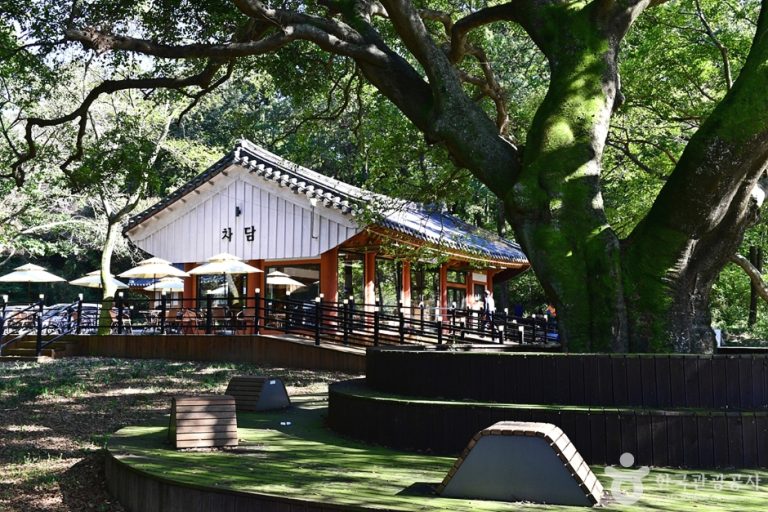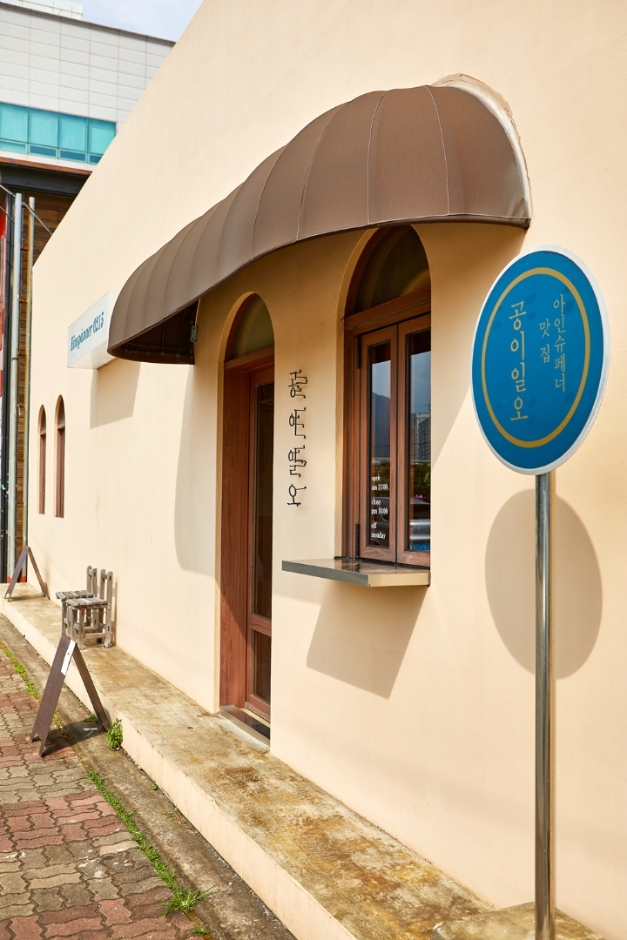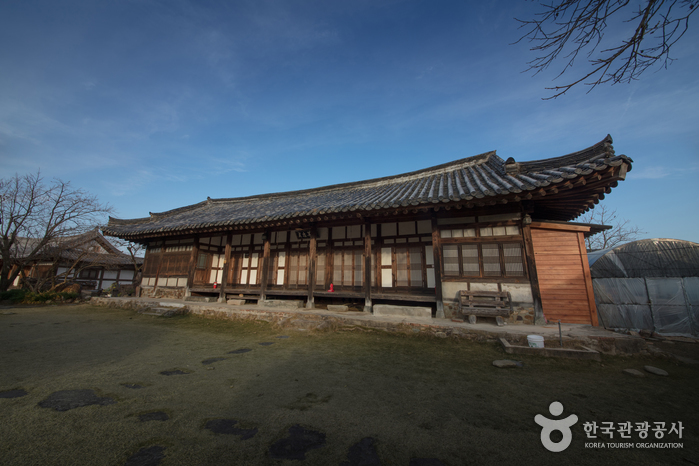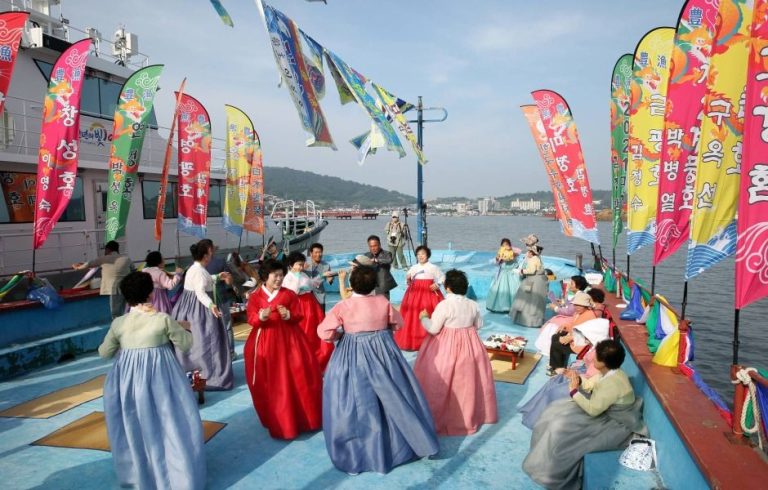Yeongam Wangin Culture Festival (영암왕인문화축제)
Yeongam Wangin Culture Festival (영암왕인문화축제)
 – Homepage
– Homepage
영암왕인문화축제.kr
– Tel
+82-61-470-2347
The Yeongam Wangin Culture Festival is a local event held to honor the birth of the Baekje scholar Wangin and his achievements. The festival’s main event is the parade. With the dance troupe leading the procession, the Pungmul troupe and Yeongam-gun residents follow in the dance, playing musical instruments and waving flags. The parade takes visitors to historical sites where traces of the scholar remain. The festival reinterprets Wangin’s humanistic values through modern perspectives, featuring major content utilizing letters and typography. It also highlights the craftsmen (ceramics, tile, and Buddhist artisans) who, along with Wangin, influenced the Asuka culture in Japan. The festival is praised for showcasing the social, political, and economic changes in Japan initiated by Wangin’s visit to Japan, making it one of Korea’s prominent humanities festivals.
– Address : 440 Wangin-ro, Yeongam-gun, Jeollanam-do
※ Presentation Information
– Event Date
20250503 ~ 20250506
– Schedule
Weekdays 10:00-19:00 / Weekend 11:00-20:00
– Location
Area of Historical Site of Wangin
– Sponsor
Yeongam-gun
– Sponsor Phone
+82-61-470-2347
– Co-Sponsor
Yeongam Culture & Tourism Organization, Yeongam-gun Folk Festival Promotion Committee
– Co-Sponsor Phone
+82-61-470-2346
– Fees
Free
– Introduction
The Yeongam Wangin Culture Festival is a local event held to honor the birth of the Baekje scholar Wangin and his achievements. The festival’s main event is the parade. With the dance troupe leading the procession, the Pungmul troupe and Yeongam-gun residents follow in the dance, playing musical instruments and waving flags. The parade takes visitors to historical sites where traces of the scholar remain. The festival reinterprets Wangin’s humanistic values through modern perspectives, featuring major content utilizing letters and typography. It also highlights the craftsmen (ceramics, tile, and Buddhist artisans) who, along with Wangin, influenced the Asuka culture in Japan. The festival is praised for showcasing the social, political, and economic changes in Japan initiated by Wangin’s visit to Japan, making it one of Korea’s prominent humanities festivals.
– Programs
Themed parade, Yeongam tour, Yeongam culture experience








◎ Nearby Tourism Infobox
⊙ Historical Site of Wangin (왕인박사 유적지)
View detailed guide on Korea Trip Guide →

– Homepage
www.yeongam.go.kr
The hometown of Wangin Baksa (Wangin the Great Scholar) is located at the foot of Munpilbong Peak to the east of Gurim Village. Due to Wangin’s importance and contributions to Korean history, this historical attraction is preserved and maintained in honor of his memory and achievements.
Seonggidong is the official birthplace of Wangin (marked by the Yuheobi memorial monument) and is also home to Seongcheon, the well Wangin is believed to have drunk from. Halfway up Wolchulsan Mountain are Chaekgul, Munsanjae and Yangsajae where Wangin is said to have studied as well as nurtured local pupils. To commemorate the significance of these areas, a memorial is held every March at Munsanjae and Yansanjae.
In front of Chaekgul is a statue of Wangin which is said to symbolize his benevolent character. Just west of Seonggidong is Doljeonggogae, a hill from which it is believed Wangin made a sorrowful look back at his countrymen before leaving for Japan.
Wangin departed for Japan from Sangdaepo, which at the time was an international trading port. The renowned Baekje scholar was beginning his journey at the request of Japanese Emperor Eungshin. He took with him ten books on the Analects of Confucius and a book of Cheonjamun, a text of one thousand Chinese characters. Over time, he earned the trust of the emperor and became instructor to the crown prince. Wangin is well-known for his part in the development of Japanese culture and his name appears often in Japanese history. Wangin educated beyond textbooks and made great contributions to the development of arts, crafts and music and is revered as the originator of Japan’s Asuka culture.
This historic site was originally reconstructed from 1985 to 1987 and is continually receiving improvements to improve accessibility for visitors.
⊙ Yeongam Pottery Museum (영암도기박물관)
View detailed guide on Korea Trip Guide →

– Homepage
https://www.yeongam.go.kr/home/smartdogi
– Tel
+82-61-470-6851
Yeongam Pottery Museum is dedicated to promoting the history of pottery in Korea, starting from the oldest known pottery coming from Gurim Village. Visitors can learn about the history of this art form through exhibitions, educational programs, and hands-on experiences. Locally produced pottery is also available for sale. Nearby attractions include the Wangin Historic Site and Ha Jung-woong Museum of Art.
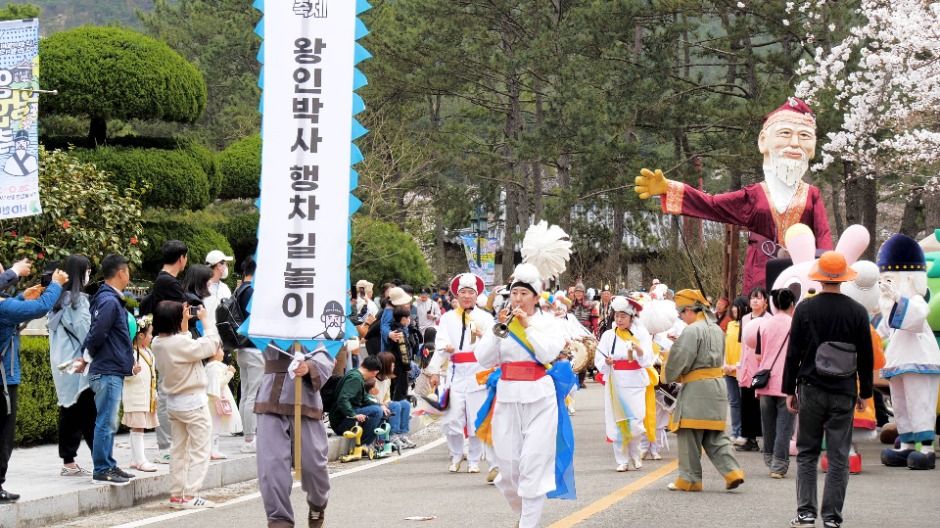
![Himart – Naju Branch [Tax Refund Shop] (하이마트 나주점)](https://ktrip.blogsailing.com/wp-content/uploads/2025/11/2886482_image2_1.jpg)
